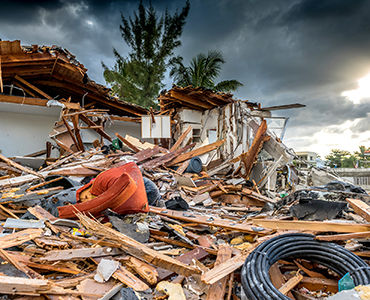In response to the devastation caused by wildfires to Butte, Los Angeles, and Ventura Counties in California, IRS has issued Notice 2019-52, 2019-41 IRB that expands previously issued relief from certain requirements of IRC § 42 (relating to low-income housing projects) and IRC § 142(d) (relating to issuers of exempt facility bonds financing qualified residential rental projects).
On November 12, 2018, President Trump issued a major disaster declaration with respect to the damage in California caused by wildfires beginning on November 8, 2018. The Federal Emergency Management Agency (FEMA) designated three counties (Butte, Los Angeles, and Ventura Counties) within California to be eligible for Individual Assistance and Public Assistance under the Stafford Act. The incident period for the California Wildfires Major Disaster began on November 8, 2018, and closed on November 25, 2018.
The latest Notice expands the emergency housing and compliance monitoring relief provided in Rev. Proc. 2014-49 and Rev. Proc. 2014-50. The expanded relief is limited to the California Wildfires Major Disaster. Except as expressly provided in the Notice, all provisions of Rev. Proc. 2014-49 and Rev. Proc. 2014-50 apply to the California Wildfires Major Disaster without modification.
Emergency Housing Relief
Solely in connection with the California Wildfires Major Disaster, IRS extended the “Temporary Housing Period” rule that is set out in both Rev. Proc. 2014-49, Sec. 12.01(1) and Rev. Proc. 2014-50, Sec. 5.02(1), to read: “The Temporary Housing Period cannot extend beyond the end of July 2020.”
Compliance Monitoring Relief
The California Tax Credit Allocation Committee (CTCAC) may extend the date for its compliance review of low-income housing projects notwithstanding section 9 of Rev. Proc. 2014-49. For any such building, this extension may not last beyond one calendar year from the later of November 25, 2018; or, in the case of a building that has suffered a casualty loss due to the California Wildfires Major Disaster or has been completely taken out of service due to the California Wildfires Major Disaster, the date of the building’s restoration and placement again in service.
This extension of dates for compliance review by the CTCAC does not, however, extend the compliance monitoring deadlines for owners or operators. If the CTCAC learns that an owner or operator has failed to comply with the rules of IRC § 42, as applicable, the noncompliance must be reported timely to IRS, along with a description of whether and how the wildfires contributed to the noncompliance.
IRS Request for Comments
IRS is considering whether to make any changes to Rev. Proc. 2014-49 and Rev. Proc. 2014-50 and seeks public comments in that regard, by Oct. 31, 2019.
Read the full article and expert analysis in Checkpoint Federal Tax Update.
Subscribe to our Checkpoint Daily Newsstand email to get all the latest tax, accounting, and audit news delivered to your inbox each weekday. It’s free!


